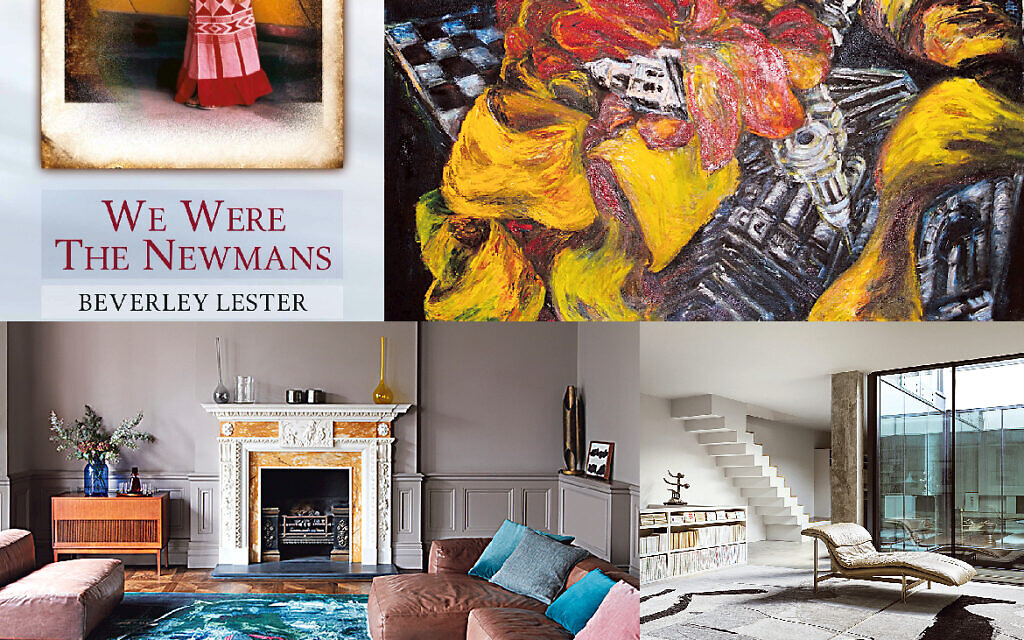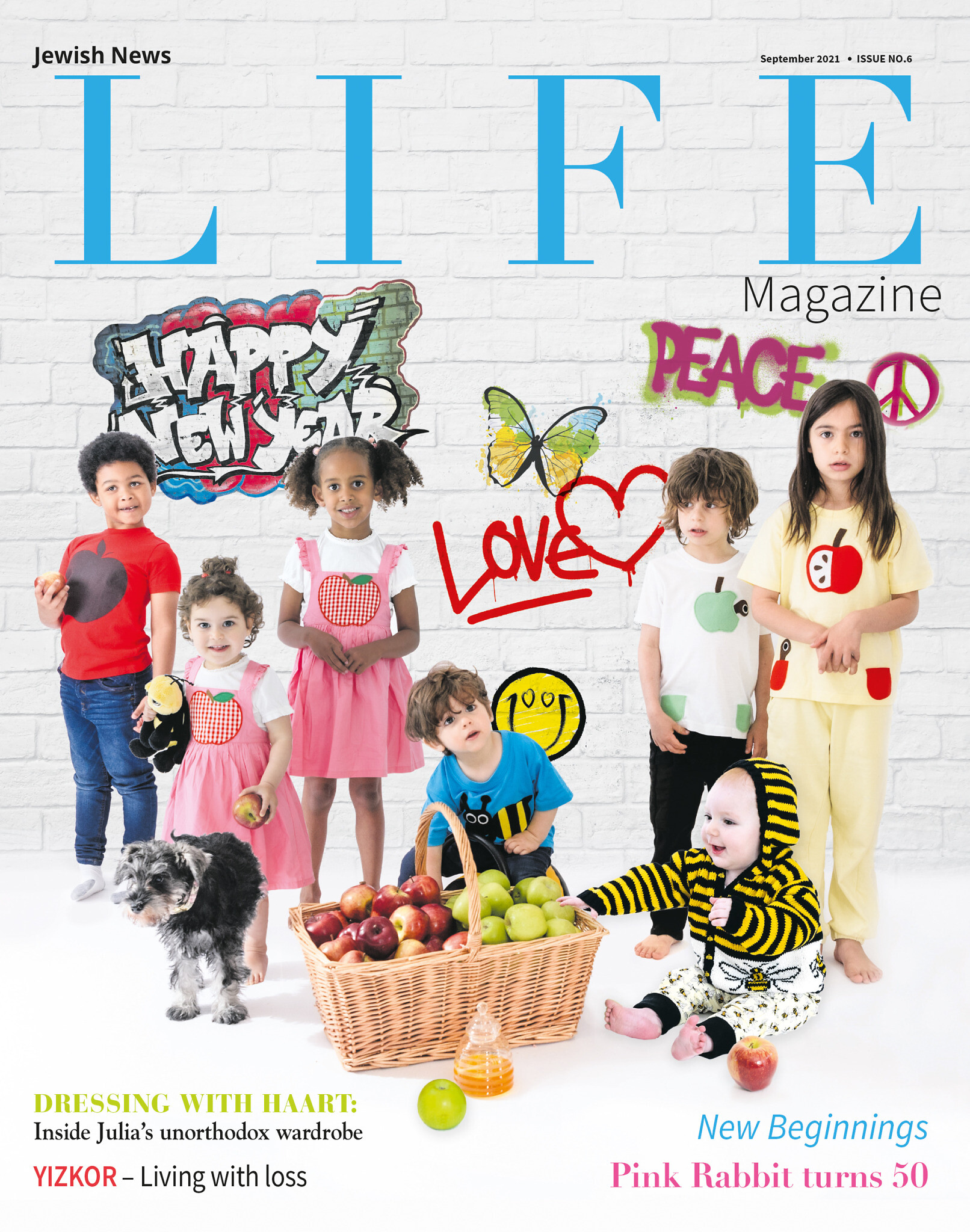The rug designer, the author, the writer and the artist
Louisa Walters chats to four women about the purpose and inspiration of their creativity
THE RUG DESIGNER
Bonnie Sutton
“A rug is a liveable art form that defines a room and brings warmth and soul to it,” says Bonnie Sutton, owner and head designer at Knots Rugs in Chelsea. Bonnie’s grandfather was a restorer of antique and oriental textiles, so rug skills are in her genes. A former pupil at JFS, Bonnie attributes an art tutor with encouraging her to explore her creative side, starting her on a journey that led to studying fine art at college and, eventually, to designing and creating her own rugs.
Get The Jewish News Daily Edition by email and never miss our top stories Free Sign Up
Bonnie founded Knots Rugs in 2007 together with her father, launching with a collection of Florence Broadhurst wallpaper designs successfully reinvented into rugs. The following year, her aunt joined the team, so this is very much a family gathering. Now, the company designs and produces its own pieces, made entirely from natural wool and silk and hand-woven on looms. The rugs are highly durable and Bonnie is proud to be keeping an ancient craft alive.
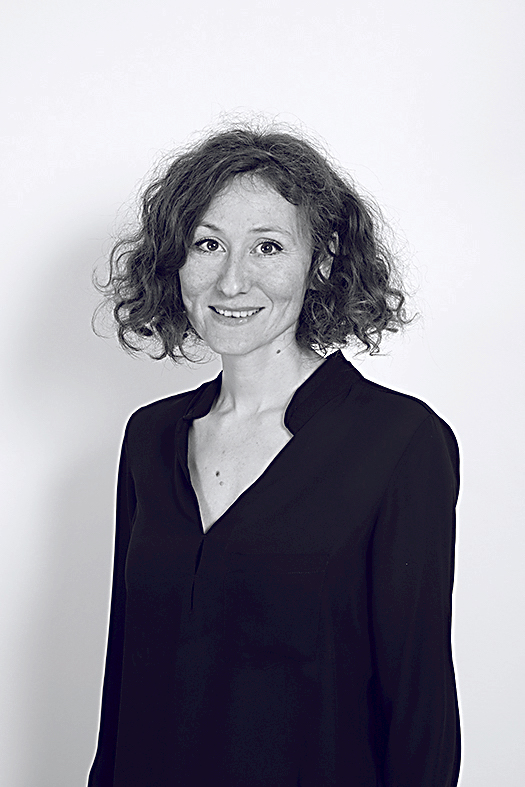
“Rugs can complement existing décor or take centre stage as a focus in a room,” she says. “This is usable art – it can be walked on, sat on, accessorised and, most of all, enjoyed.”
Based on the Kings Road in Chelsea, Knots Rugs has created some landmark pieces and a stunning artistic collaboration collection called Your Floor is the Canvas.
“There are many Jewish families with links to the rug trade,” says Bonnie. “My heritage spans three generations and the knowledge has been passed down from my grandfather to my father and from my father to me.”
Hand-knotted rugs are an investment and trying them in situ is the best way to choose the right one for your space.
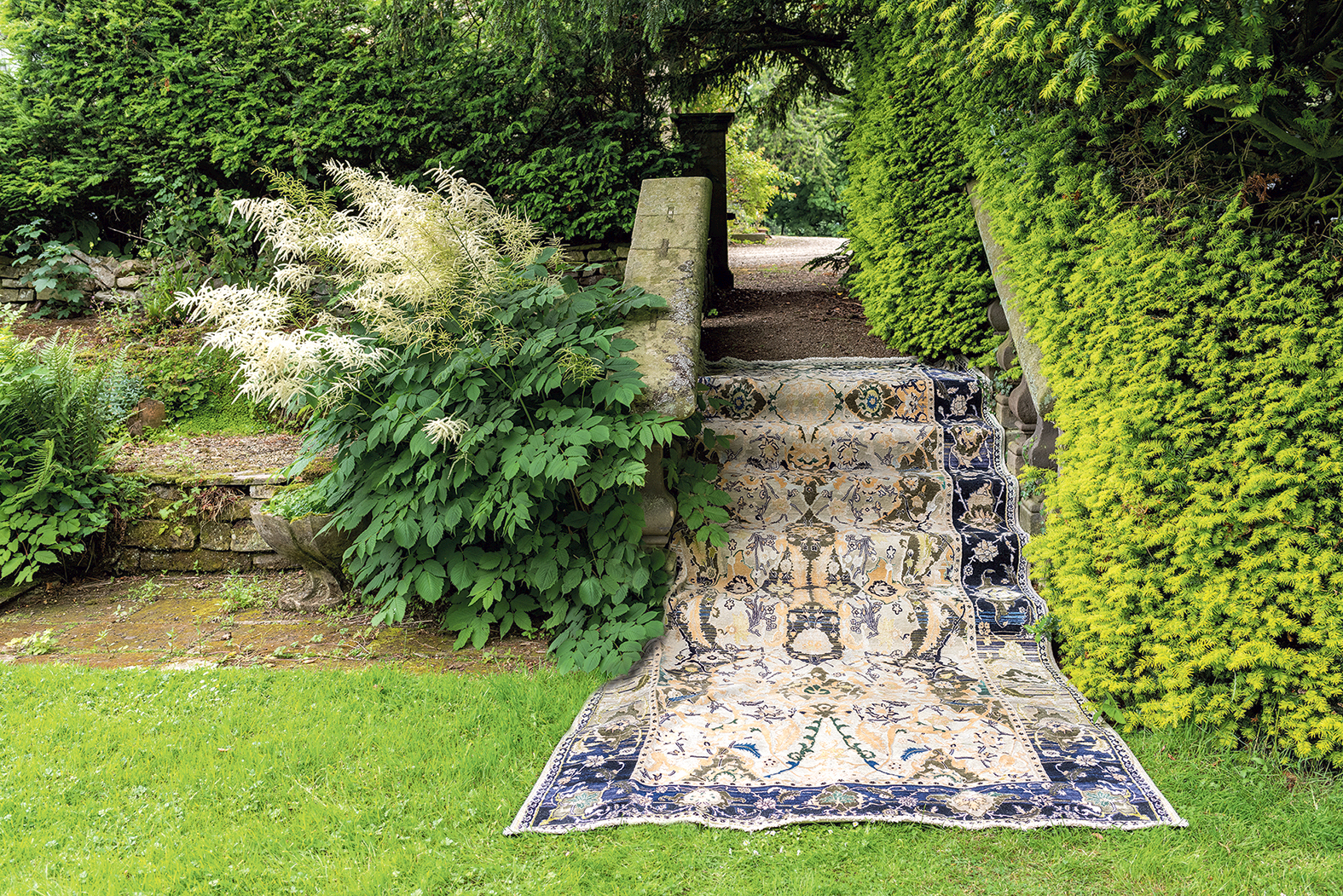
“What you might think is an outsider can quickly become the favourite, as the light, space and furniture all play their part in how well a rug works in a room,” explains Bonnie.
Materials are also a consideration. In high traffic areas, such as hallways, 100 percent wool or a wool/silk mix is advisable, as wool is the most durable natural fibre and easiest to maintain. Silk brings an element of luxury, shine and softness to the rug – it really lifts the colours and creates a play with light. With natural fibres, the rug can be cleaned professionally whatever the spillage and quality weaving means that it can last a lifetime.
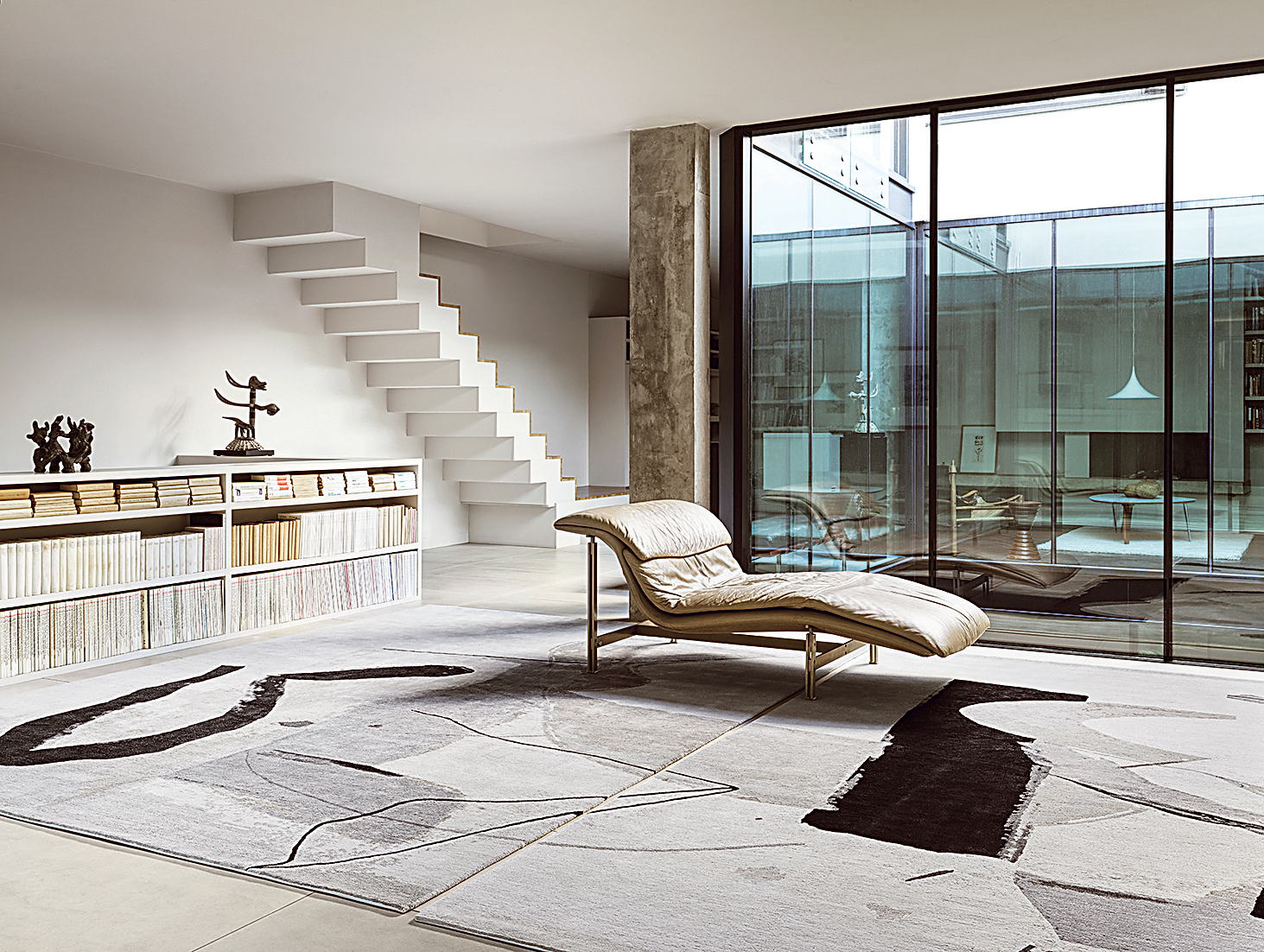
THE MUSICAL THEATRE WRITER
Emily Rose Simons
Friday nights were a highlight for musical theatre writer Emily Rose Simons when she was little. After dinner at her grandparents’ house, she would step out from behind the floor-length curtains and perform shows for her family. “I was no good at dancing or singing, but still I kept going,” she confesses.
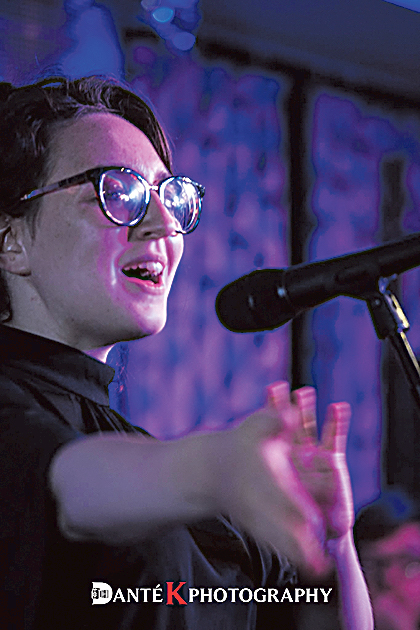
Writing songs and composing shows was always in Emily’s skill set and, from the age of nine, she was entering song-writing competitions.
This year, Emily has made it on to the shortlist of finalists for the Musical Theatre Writers’ Song Competition. If she wins, her song will be presented by a West End performer on 10 September at the Hackney Empire.
The song she has entered is the opening number of a new musical she is working on called The Funeral Lady.
“It may sound rather morbid, and although it is indeed dark, it is also comic and heart-warming,” she says.
“I lost my grandma just before the pandemic and this got me thinking about funerals, especially those where there are no friends or family to organise them.”
Emily was awarded both a BA and an MA in music at Bristol University and, with the encouragement of her family, took part in a graduate music theatre programme at NYU, which was the point of no return. “I think this was when they clocked that I wasn’t going to be a lawyer!” she laughs.
Emily tends to write female-related musicals, sometimes peppered with references to same-sex relationships and Judaism. A good example of this is Confessions of a Rabbi’s Daughter.
In the past, it was directed, produced and performed by Emily herself, but it is due to return next year and, this time, she is working with an up-and-coming producer and a musical director who has worked on Six (and been to Shabbat dinner at her grandma’s!).
It has been shown at the Edinburgh Fringe, Off-West End, Off-Off Broadway, toured the UK and the US. The show is about Rachel, a girl who has always wanted to make her father, a rabbi, proud by becoming a rebbetzin. However, as her parents plan their daughter’s wedding, her friendship with another female blossoms into love. Emily’s brilliant songs chart Rachel’s turbulent emotional struggle to choose between her heart and her father’s dreams.
THE AUTHOR
Beverley Lester
Psychotherapist Beverley Lester published her first novel, We Were The Newmans, earlier this year. She was born in London but grew up in Johannesburg and Tel Aviv. In 1989, she returned to London, where she married Steven and had three children, who are now young adults.
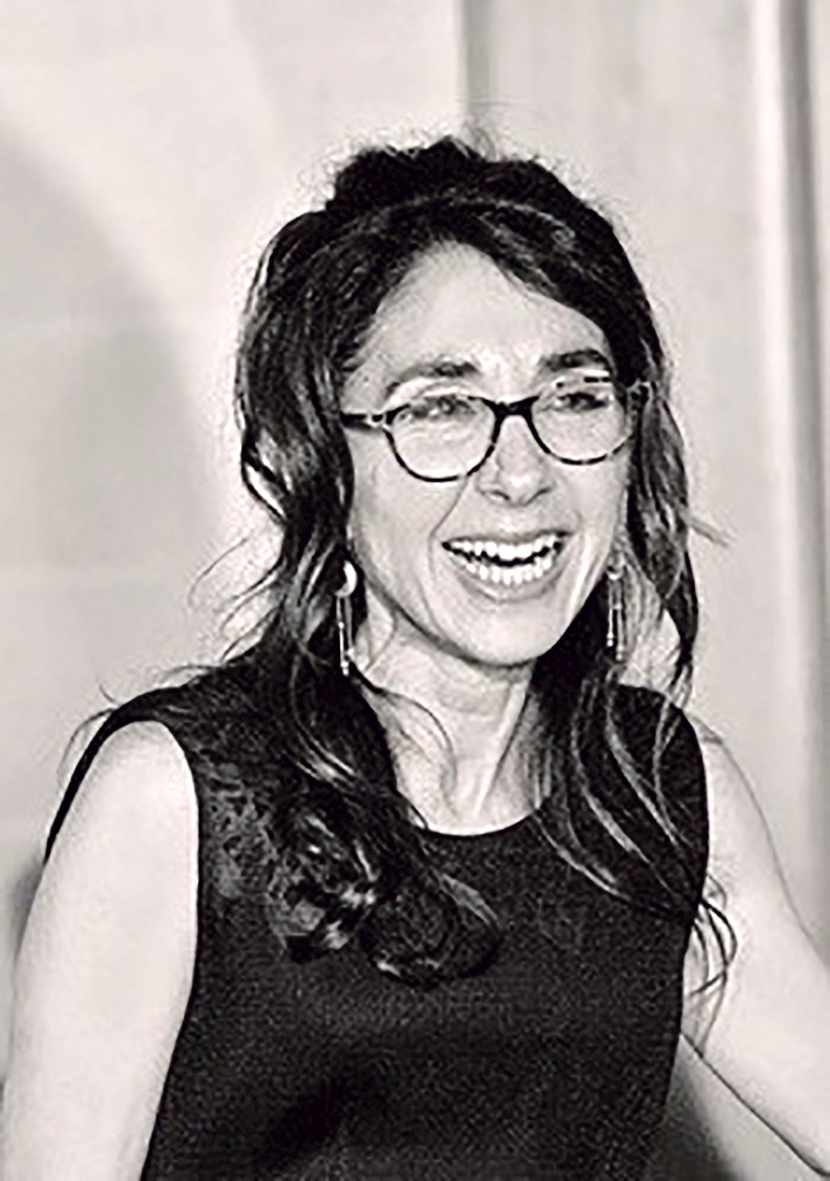
“The story I have written grew out of many experiences, both professional and personal,” says Beverley. “Part of the work of being a therapist is to bear witness to another person’s story. The therapist holds the story of the other person’s reality, and part of that experience might mean struggling with what was and will never be again, what wasn’t and can never be – the universal experiences of loss. Embedded in that can so often be the struggle to forgive – to forgive others and to forgive ourselves. We Were The Newmans looks at whether it is possible to forgive.”
Beverley began thinking about these ideas more than 21 years ago, when she went back to South Africa for the first time since leaving 14 years earlier. “I had a strong sense of guilt, shame and confusion around my identity as a South African, and huge, visceral delight in returning to the heat, the space, the light and the huge skies. Out of that, I began with what became the end of the book – the story of a woman returning, after many years, to where she grew up,” she says.
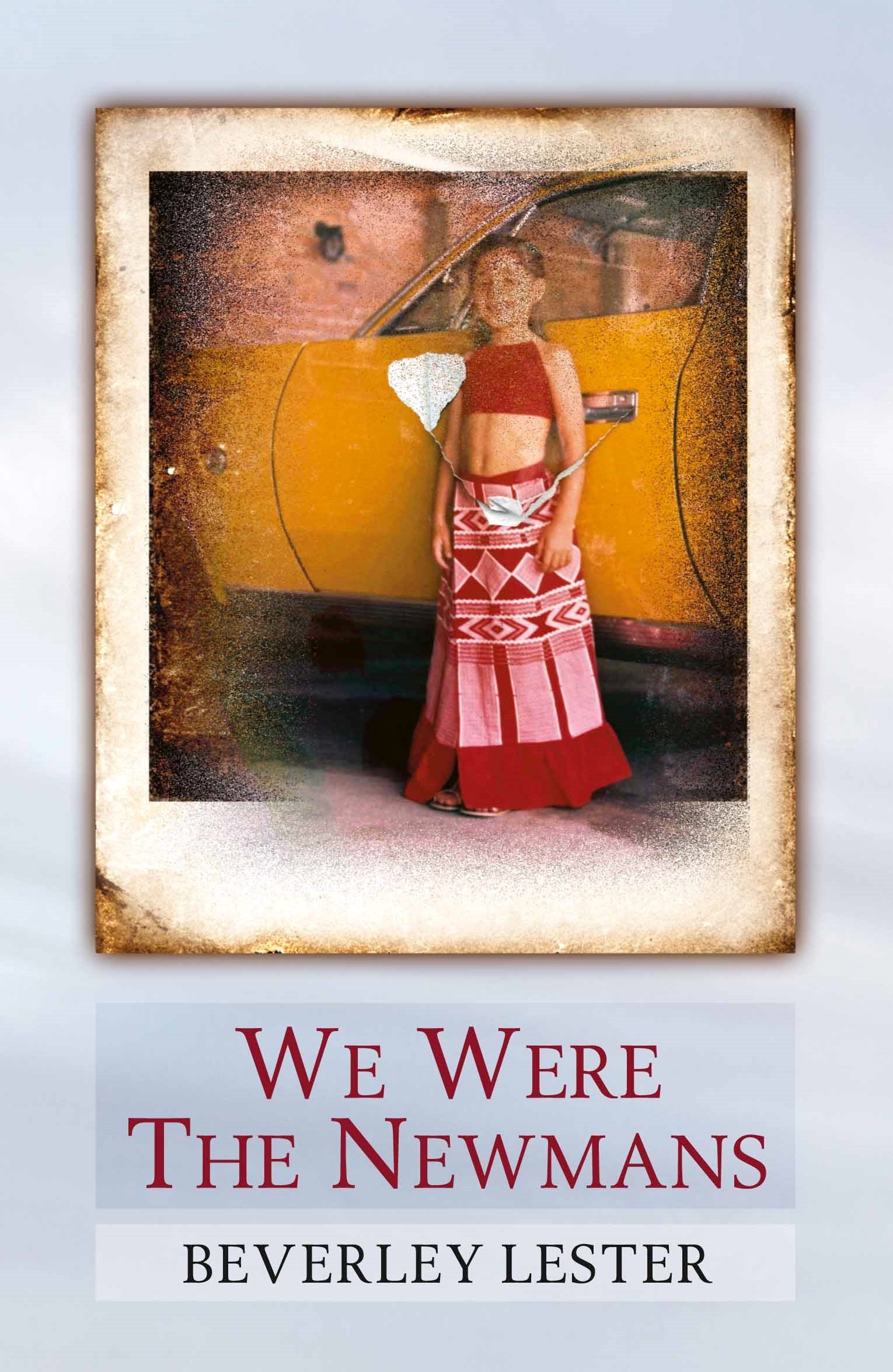
Ruth Newman, the main character, is trying to make sense of her life after suffering a complex trauma. She has to learn compassion for herself in order to move on, and it is only when she is able to change by fully imagining herself as someone she has held to be unacceptable that she is able to realise her full potential.
Beverley is delighted with the many positive reviews for the book, plus the interest it has generated in debate with readers and in conversations she has had with charities that are at the forefront of the reconciliation process. She is hopeful it can support and raise awareness in this space.
We Were The Newmans is available to purchase on www.amazon.co.uk
THE ARTIST
Francine Scialom Greenblatt
Francine Scialom Greenblatt was born in Cairo in 1951, grew up in South Africa and now lives in London. She’s been painting for 50 years
and has exhibited at more than 100 prestigious art shows, galleries and public spaces all over the world. At the age of 70, she is still painting and exhibiting. Lockdown didn’t stop her – she has launched a new virtual gallery space and does regular Insta lives.
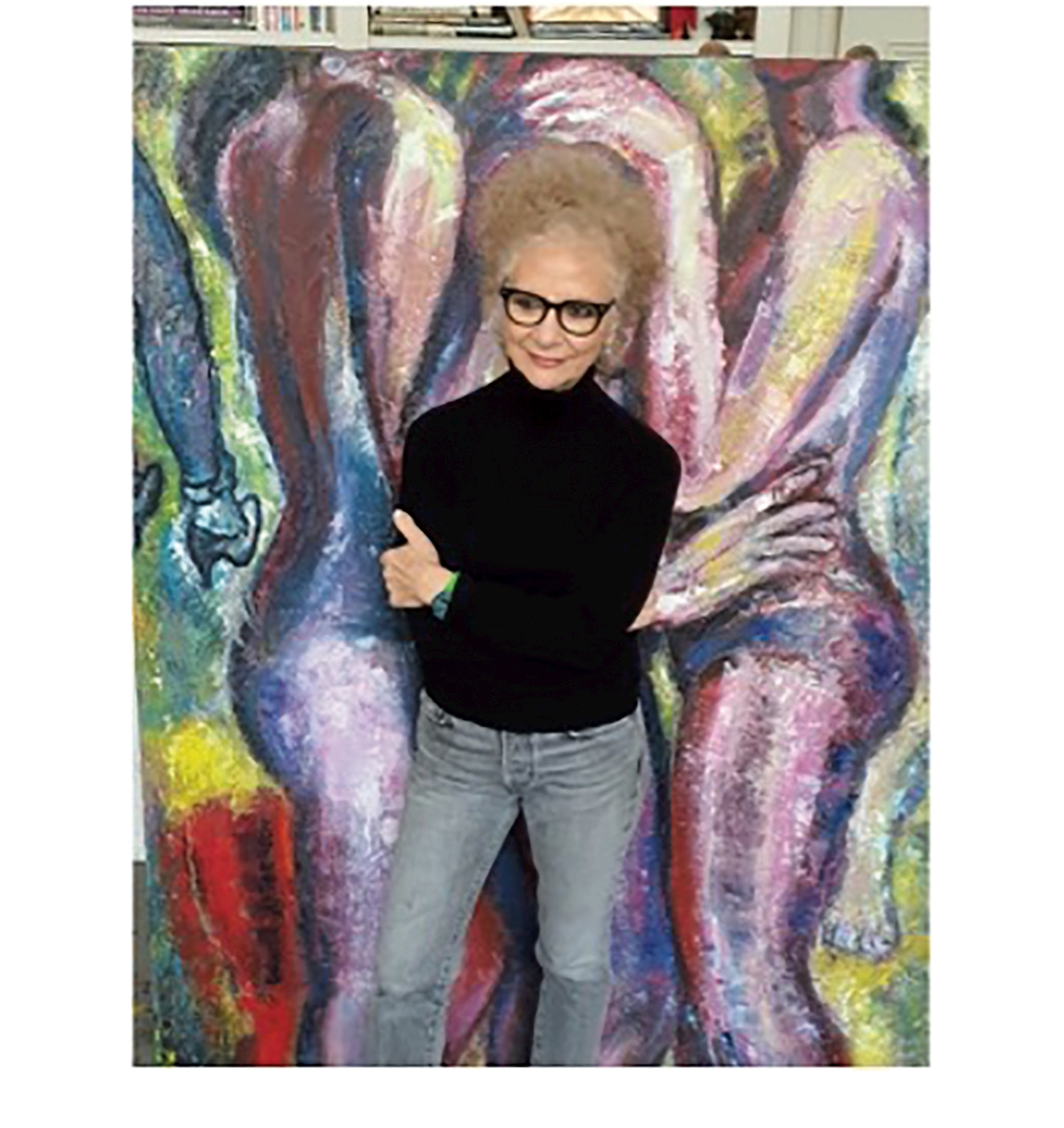
Francine is best known for her paintings of the eroticised figure, but living in Egypt during the Suez Canal crisis, her Jewish upbringing, politics, religion, breaking taboos and having to adapt to different cultures as the family moved to other countries, have all played pivotal roles in her work. With a Spanish mother, an Italian father (Scialom is an Italian spelling of ‘shalom’) and a childhood spent in many countries, Francine recognises the importance of language as a key to engage in the world and she is multilingual.
“My father was generous and compassionate, my mother was eccentric and creative, and both encouraged me to be independent and courageous in formulating personal ideas,” says Francine. “At the age of eight, I developed jaundice and I was bedridden for a couple of weeks. To occupy me, my Mum gave me something to ‘copy’. It was an Alitalia calendar with wonderful reproductions of Leonardo da Vinci’s works. She asked if I’d traced the drawing of the Mona Lisa… from then on, she encouraged
me even further.”
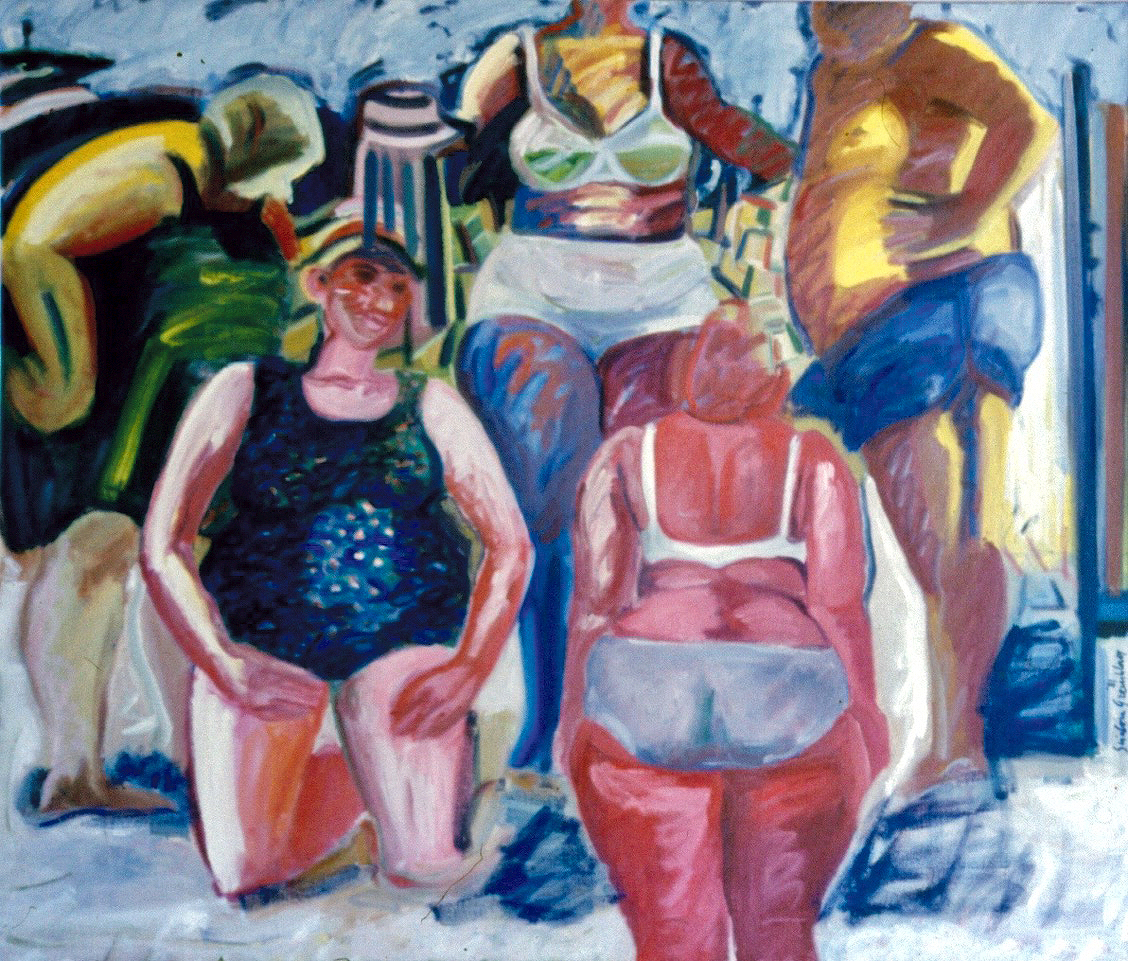
Oil on Canvas
150x168cm
Lockdown and the loss of her mother just before it brought a new element to her work. “I found myself looking at and being overwhelmed by the skies on my walks. I felt grateful to be alive and I felt my mum’s aura all around me – as if the spirit world and nature came together. It was a challenge to convey all this in a 2D image,” she says. A browse of her ‘In Lockdown’ collection on her new website shows that she managed it rather well.
An intensely private person, lockdown was not too much of a challenge for Francine, but she decided to embrace the new technology and has, as she puts it, become an Instagram Queen, talking regularly to her 1,500 followers from her studio. She is a great orator with a bubbly personality and brings her paintings to life on screen. She also took the opportunity to launch her website, so she can exhibit virtually. “Painting and not exhibiting is like writing and not publishing,” she says. “Showing your work is the fullness of it.”
Francine’s new virtual exhibition, To Love & To Hold, is now live on her virtual gallery. It celebrates painting and the nude by inviting the viewer to enter intimate ideas through a voyeuristic lens.
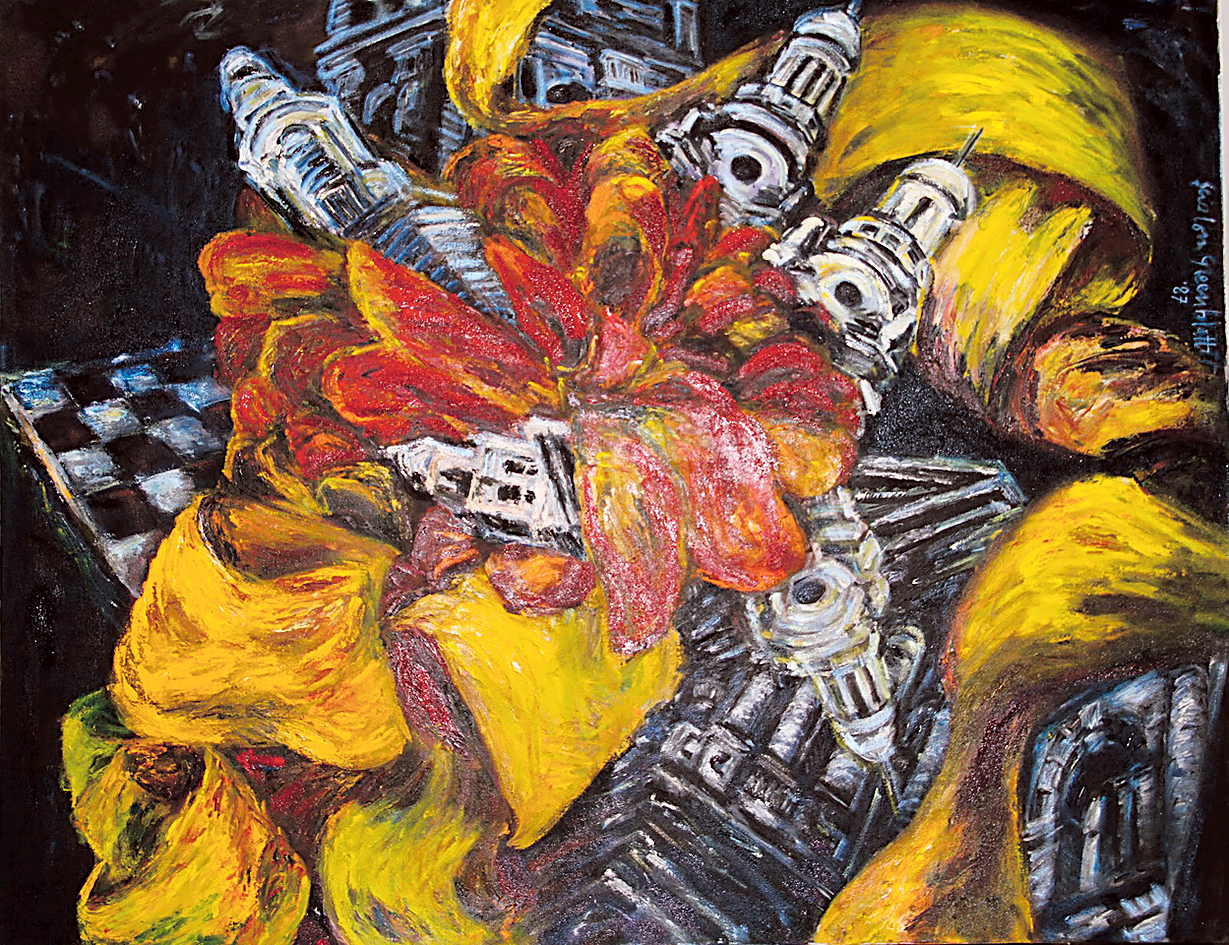

Thank you for helping to make Jewish News the leading source of news and opinion for the UK Jewish community. Today we're asking for your invaluable help to continue putting our community first in everything we do.
For as little as £5 a month you can help sustain the vital work we do in celebrating and standing up for Jewish life in Britain.
Jewish News holds our community together and keeps us connected. Like a synagogue, it’s where people turn to feel part of something bigger. It also proudly shows the rest of Britain the vibrancy and rich culture of modern Jewish life.
You can make a quick and easy one-off or monthly contribution of £5, £10, £20 or any other sum you’re comfortable with.
100% of your donation will help us continue celebrating our community, in all its dynamic diversity...
Engaging
Being a community platform means so much more than producing a newspaper and website. One of our proudest roles is media partnering with our invaluable charities to amplify the outstanding work they do to help us all.
Celebrating
There’s no shortage of oys in the world but Jewish News takes every opportunity to celebrate the joys too, through projects like Night of Heroes, 40 Under 40 and other compelling countdowns that make the community kvell with pride.
Pioneering
In the first collaboration between media outlets from different faiths, Jewish News worked with British Muslim TV and Church Times to produce a list of young activists leading the way on interfaith understanding.
Campaigning
Royal Mail issued a stamp honouring Holocaust hero Sir Nicholas Winton after a Jewish News campaign attracted more than 100,000 backers. Jewish Newsalso produces special editions of the paper highlighting pressing issues including mental health and Holocaust remembrance.
Easy access
In an age when news is readily accessible, Jewish News provides high-quality content free online and offline, removing any financial barriers to connecting people.
Voice of our community to wider society
The Jewish News team regularly appears on TV, radio and on the pages of the national press to comment on stories about the Jewish community. Easy access to the paper on the streets of London also means Jewish News provides an invaluable window into the community for the country at large.
We hope you agree all this is worth preserving.
-
By Brigit Grant
-
By Laurent Vaughan - Senior Associate (Bishop & Sewell Solicitors)
-
By Laurent Vaughan - Senior Associate (Bishop & Sewell Solicitors)
-
By Laurent Vaughan - Senior Associate (Bishop & Sewell Solicitors)
-
By Laurent Vaughan - Senior Associate (Bishop & Sewell Solicitors)


